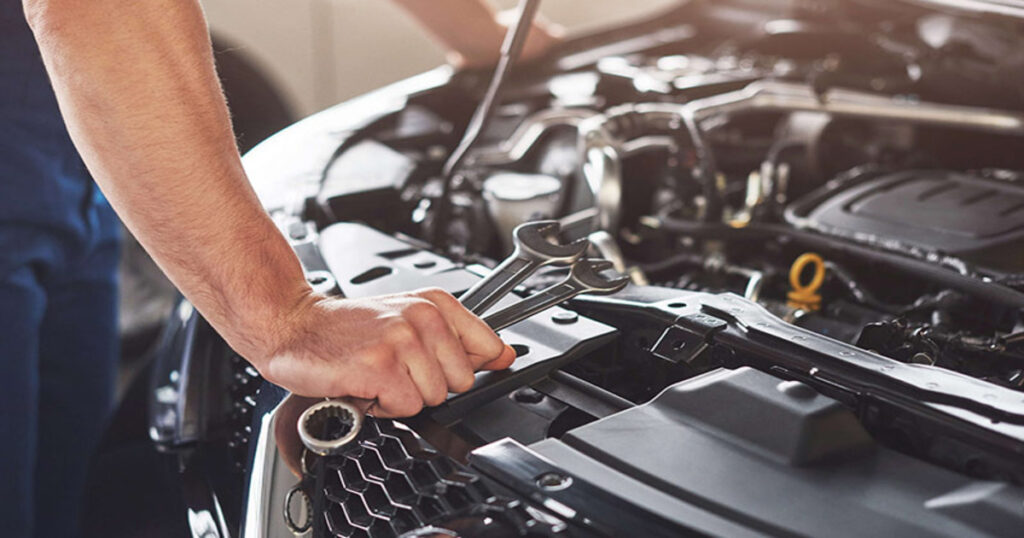The Importance of Regular Car Maintenance and Spare Parts Replacement
Introduction Regular car maintenance and the timely replacement of spare parts are crucial aspects of vehicle ownership that ensure the safety, reliability, and longevity of the automobile. While the excitement of owning a car often revolves around its performance, aesthetics, and the freedom it provides, the less glamorous yet essential aspect of maintenance plays a pivotal role in sustaining these benefits. Ignoring routine check-ups and delaying the replacement of worn-out parts can lead to a cascade of problems, ranging from minor inconveniences to severe mechanical failures and safety hazards. Overview of Regular Car Maintenance Definition and Purpose Regular car maintenance refers to the routine check-ups and servicing of various vehicle components to ensure optimal performance and longevity. This process includes inspecting, adjusting, and replacing parts as needed to keep the car running smoothly and safely. The primary purpose of regular car maintenance is to prevent potential problems, enhance the vehicle‘s efficiency, and maintain its overall health. Benefits of Regular Maintenance Higher Resale Value: A well-maintained car is more attractive to potential buyers. Keeping detailed maintenance records can help demonstrate the vehicle’s reliability and care, leading to a higher resale value Consequences of Neglecting Maintenance Essential Maintenance Tasks Oil and Filter Changes Oil is the lifeblood of an engine, providing necessary lubrication to reduce friction between moving parts, dissipate heat, and prevent wear. Over time, engine oil degrades and becomes contaminated with dirt and debris. Regular oil changes, along with replacing the oil filter, ensure the engine remains well-lubricated and clean. Tire Care (Rotation, Alignment, and Pressure Checks) Proper tire maintenance is crucial for vehicle safety, fuel efficiency, and extending tire life Brake System Inspections Brakes are a critical safety component, and their regular inspection is vital. Brake pads, rotors, and brake fluid should be checked periodically. Fluid Checks and Top-Ups (Coolant, Transmission, Brake Fluid, etc.) Various fluids play essential roles in vehicle operation, and their levels and conditions should be regularly monitored Battery Maintenance A well-maintained battery ensures reliable engine starts and powers the vehicle’s electrical systems. Regular checks for corrosion on terminals, ensuring a secure connection, and testing the battery’s charge level are important. Most batteries last 3 to 5 years, and signs of a weak battery, such as slow engine cranking, indicate it may need replacement. Air Filter Replacements Air filters prevent dirt and debris from entering the engine, ensuring optimal air-fuel mixture and engine performance. A clogged air filter can reduce fuel efficiency and engine power. It should be checked during oil changes and replaced every 12,000 to 15,000 miles or as recommended by the manufacturer. Timing Belt and Serpentine Belt Checks The Importance of Regular Car Maintenance and Spare Parts Replacement Introduction Regular car maintenance and timely replacement of spare parts are crucial aspects of vehicle ownership that ensure safety, reliability, and longevity of the automobile. While the excitement of owning a car often revolves around its performance, aesthetics, and the freedom it provides, the less glamorous yet essential aspect of maintenance plays a pivotal role in sustaining these benefits. Ignoring routine check-ups and delaying the replacement of worn-out parts can lead to a cascade of problems, ranging from minor inconveniences to severe mechanical failures and safety hazards. Overview of Regular Car Maintenance Definition and Purpose Regular car maintenance refers to the routine check-ups and servicing of various vehicle components to ensure optimal performance and longevity. This process includes inspecting, adjusting, and replacing parts as needed to keep the car running smoothly and safely. The primary purpose of regular car maintenance is to prevent potential problems, enhance the vehicle’s efficiency, and maintain its overall health. Benefits of Regular Maintenance Consequences of Neglecting Maintenance Essential Maintenance Tasks Oil and Filter Changes Oil is the lifeblood of an engine, providing necessary lubrication to reduce friction between moving parts, dissipate heat, and prevent wear. Over time, engine oil degrades and becomes contaminated with dirt and debris. Regular oil changes, along with replacing the oil filter, ensure the engine remains well-lubricated and clean. Tire Care (Rotation, Alignment, and Pressure Checks) Proper tire maintenance is crucial for vehicle safety, fuel efficiency, and extending tire life. Brake System Inspections Brakes are a critical safety component, and their regular inspection is vital. Brake pads, rotors, and brake fluid should be checked periodically. Fluid Checks and Top-Ups (Coolant, Transmission, Brake Fluid, etc.) Various fluids play essential roles in vehicle operation, and their levels and conditions should be regularly monitored. Battery Maintenance A well-maintained battery ensures reliable engine starts and powers the vehicle’s electrical systems. Regular checks for corrosion on terminals, ensuring a secure connection, and testing the battery’s charge level are important. Most batteries last 3 to 5 years, and signs of a weak battery, such as slow engine cranking, indicate it may need replacement. Air Filter Replacements Air filters prevent dirt and debris from entering the engine, ensuring optimal air-fuel mixture and engine performance. A clogged air filter can reduce fuel efficiency and engine power. It should be checked during oil changes and replaced every 12,000 to 15,000 miles or as recommended by the manufacturer. Timing Belt and Serpentine Belt Checks Spare Parts Replacement Importance of Using Quality Spare Parts Using high-quality spare parts is essential for maintaining the performance, reliability, and safety of a vehicle. Common Spare Parts That Need Regular Replacement Signs Indicating the Need for Part Replacements Economic Benefits Cost Savings from Preventing Major Repairs Regular maintenance helps identify and address minor issues before they escalate into major, costly repairs. For example, timely oil changes prevent engine wear and potential damage, while inspecting brakes can catch worn pads before they damage rotors. By investing in routine maintenance, car owners avoid the expense of extensive repairs and prolong the overall lifespan of their vehicle. Enhanced Fuel Efficiency Properly maintained vehicles operate more efficiently. Tasks such as regular oil changes, keeping tires properly inflated, and replacing clogged air filters improve fuel economy. Improved fuel efficiency not only saves money at the pump but also reduces the environmental impact of driving. Improved

